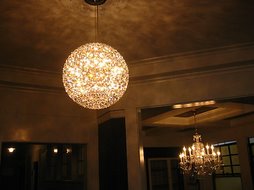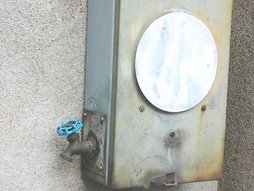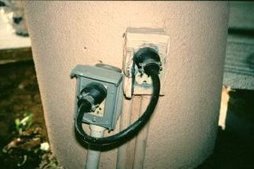Maintain Electrical Safety
The insulation on electrical wires can become damaged by wear, flexing, or age. Some clues that you may have an electrical problem are:
- Flickering lights. If the lights dim every time you turn on an appliance that circuit is overloaded or has a loose connection.
- Sparks. If sparks appear when you insert or remove a plug, that could be a sign of loose connections.
- Frequent blown fuses or broken circuits. A fuse or circuit breaker that keeps tripping is an important warning sign of problems.
- Frequent bulb burnout. A light bulb that burns out frequently is a sign that the bulb is too high a wattage for the fixture.
- Avoid the use of extension cords.
Aging happens but fires don't have to...
ARC FAULT CIRCUIT INTERRUPTER
AFCI – a new type of circuit breaker that recognizes potential fire hazards and immediately shuts off the power.
All 120-volt, single phase, 15 and 20-ampere branch circuits supplying outlets installed in dwelling unit family rooms, dinning rooms, living rooms, parlors, libraries, dens, bedrooms, sunrooms, recreation rooms, closets, hallways, or similar rooms or areas shall be protected by a listed arc-fault circuit interrupter combination type.
AFCI – a new type of circuit breaker that recognizes potential fire hazards and immediately shuts off the power.
Top Causes of Arc Faults
- Loose or improper connections, such as electrical wires to outlets or switches
- Frayed appliance or extension cords
- Pinched or pierced wire insulation, such as a wire inside a wall nipped by a nail or a chair leg sitting on an extension cord
- Cracked wire insulation stemming from age, heat, corrosion, or bending stress
- Overheated wires or cords
- Damaged electrical appliances
- Electrical wire insulation chewed by rodents











Very nice post, thanks for sharing the information. Keep up the good work.
ReplyDeleteelectrician woburn ma